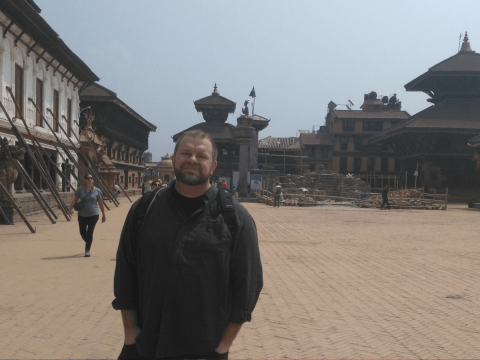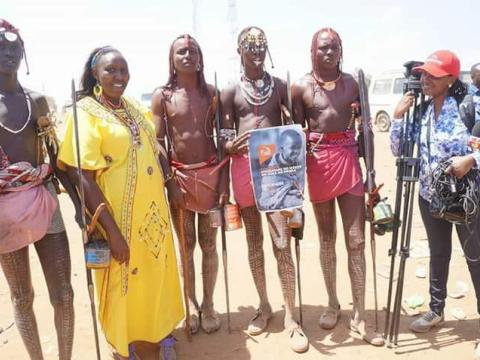
Can faith-based organisations balance expertise and humility?
Matt asks what it means for World Vision to be humble when it comes to preventing and responding to violence against children?
Matt Stephens, Sr. Technical Advisor - Child Protection, World Vision
The Bible encourages humility and warns against pride. How does World Vision, a Christian organisation, ‘walk humbly’ while providing expert thought leadership to the child protection sector? I reflected on this during the 2021 International Society for Prevention of Child Abuse and Neglect (ISPCAN) International Congress and, given World Vision is leading a session at the upcoming World Summit on Ending Child Abuse and Neglect, it seemed a good time to share what I’d concluded.
During the week of June 7-11, at the congress, World Vision staff and our academic research partners shared learnings, insights and innovations around how we create a more protective environment for children. I was proud to see how over ten sessions in five days, our staff exhibited a level of excellence and rigor as they presented their research and results and also showed a relentless pursuit of learning, constant improvement, and excellence in impact.
We clearly had things to share with our industry, yet, historically, World Vision does not talk about our achievements. Rather our modus operandi has been to do excellent work, prioritizing the needs of children, while keeping our head down and staying quiet about our achievements so as to not appear boastful or arrogant. I’ve reflected on some version of this question over my 15 years with World Vision, and this year’s ISPCAN conference crystallized some of my thinking about humility in our work for children.
Humility means sharing our challenges and questions, along with our achievements.
“If this works, it could change everything…” For two years, this has been our mantra on the pilot project World Vision and Johns Hopkins University Schools of Public Health and Engineering have been implementing—applying system dynamics modelling to predict and respond to community violence against children. If successful, the data-driven model would allow us to better understand the complex interplay of risk and protective factors influencing violence against children, using data and evidence to hone in on which factors have the strongest influence on violence, and which interventions have the greatest return on investment towards our ultimate goal.
If it works. We’re excited to be on the cutting-edge of innovations to address violence against children, but we acknowledge publicly that there are still lots of questions and things to learn. I was so impressed to see our World Vision colleagues at ISPCAN sharing some incredible evidence of impact, while being transparent as well about what didn’t work; where we need to improve, and what further work is ahead. Excellence is found in the constant striving for perfection; humility is acknowledging that while we continue to strive for success, we’re not there yet.
Humility means acknowledging we can’t do it alone.
“It takes a world to end violence against children.” The framing of our global campaign so perfectly describes the reality of our work in child protection—the situation cannot change without the contribution of all of those around a child: the formal and informal actors that make up a child protection system from children themselves, to teachers and faith leaders, to Ministers and UN agencies.
Matthew Stephens is the Senior Technical Advisor for Child Protection with World Vision US based in Washington, DC. For over 16 years, Matthew has worked domestically and internationally to strengthen government and community responses to child abuse, neglect and exploitation. Since 2011, Matthew has served as World Vision US’s principal technical advisor for child protection programming in over 20 countries. Prior to his current role, Matt spent eight years in the Republic of Georgia, and from 2007 to 2011 led World Vision’s response to human trafficking in the Middle East and Eastern Europe as Regional Anti-Trafficking Coordinator. Principle interests are faith community influence on violence against children, system dynamics in CP systems, male engagement in addressing adolescent GBV, and child labour trafficking. Matt holds a Master of Science in Social Work from the University of Texas-Arlington.
Image: Matt in Nepal in 2017.
